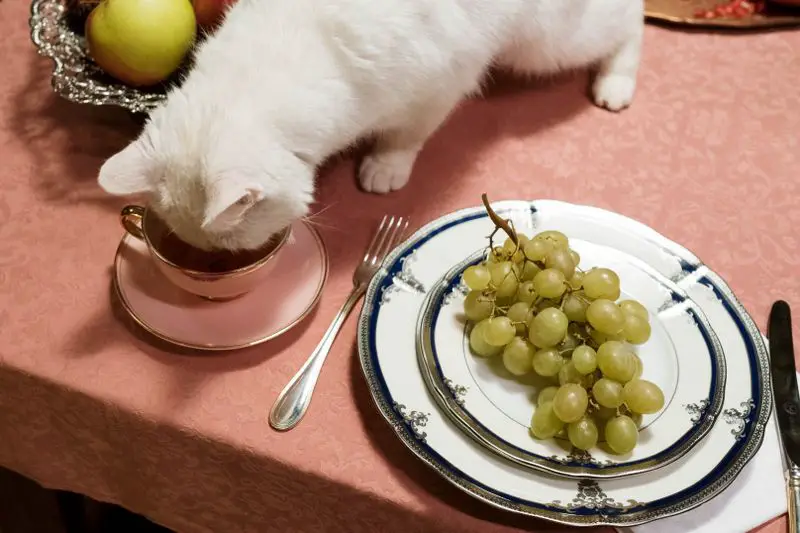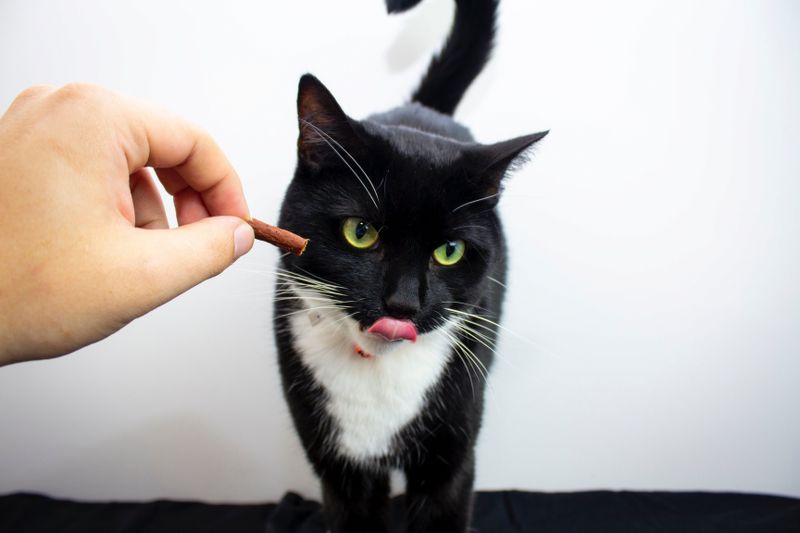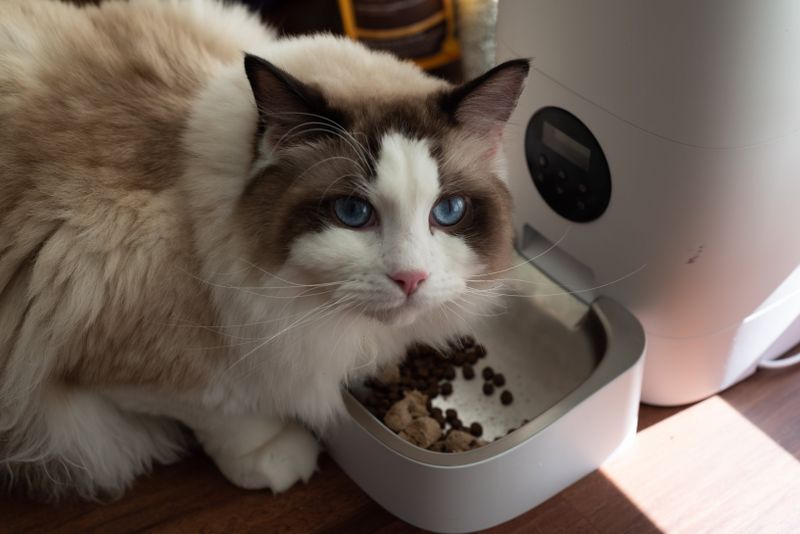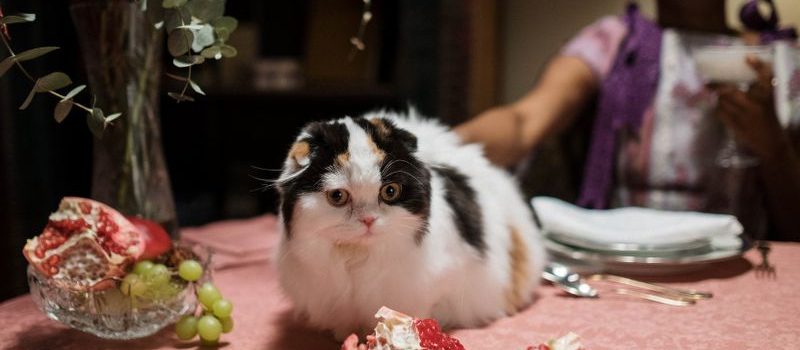Homemade cat food recipes vet approved, offer a tailored approach to feline nutrition. For pet owners who value their cats’ health and well-being, crafting meals at home can be a thoughtful and fulfilling choice.
However, it’s crucial to recognize that cats have specific dietary requirements. This is where veterinary expertise becomes essential, ensuring that homemade recipes are nutritionally balanced and safe.
In this guide, we’ll explore the motivations behind preparing cat food at home, the advantages and challenges it presents, and the critical steps to guarantee that your feline companion’s nutritional needs are met with homemade cat food recipes vet approved.

Importance of Homemade Cat Food Recipes Vet Approved
Homemade cat food recipes vet approved provide various benefits for feline health. Customizing the nutrition in these recipes can address specific dietary needs, making them ideal for cats with allergies, sensitivities, or medical conditions. Consulting with a veterinarian or veterinary nutritionist is crucial to ensure your cat’s nutritional requirements are met.
One advantage of vet approved homemade cat food recipes is quality control. By carefully selecting high-quality ingredients, you can guarantee the safety and freshness of your cat’s diet, bypassing potential issues like recalls or questionable additives in commercial cat food. This control also extends to ingredient transparency, as you’ll be fully aware of what goes into your cat’s meals whether it be chicken meat or chicken meal.
Freshness is another key benefit. Preparing homemade cat food in small batches ensures that it’s always fresh, which can be more appealing to cats and encourage better eating habits. Additionally, you have complete control over the ingredients, allowing you to cater to your cat’s preferences or specific health requirements. For instance, if your cat has kidney disease, you can choose ingredients with high protein low carb cat food.
Homemade cat food recipes vet approved can also help address food allergies and sensitivities, promoting improved digestion and overall well-being. Regularly consulting with a veterinarian to monitor your cat’s health and ensure dietary adjustments are made as needed is crucial to maintaining their well-being with homemade cat food.

3 Homemade Cat Food Recipes Vet Approved
It’s important to ensure that homemade cat food recipes vet approved are nutritionally balanced and meet your cat’s dietary requirements. Always consult a veterinarian before significantly changing your cat’s diet, as individual cat nutritional needs can vary. Here are three homemade cat food recipes:
Beef Cat Food
Ingredients:
- 1 lb (450g) lean ground beef
- 1/2 cup cooked white rice or cooked oatmeal
- 1/4 cup cooked peas and carrots (mashed)
- 1/4 cup chicken or beef broth (low sodium)
- 1 tablespoon vegetable oil
Instructions:
- Cook the meat thoroughly, making sure it’s not pink or raw.
- Cook the rice or oatmeal according to the package instructions.
- Mix the cooked meat, rice or oatmeal, mashed peas and carrots, broth, and vegetable oil.
- Let the mixture cool before serving to your cat.
Cat Food with Fish
Ingredients:
- 1/2 lb (225g) boneless, skinless fish (salmon, tuna, or cod)
- 1/4 cup cooked and mashed sweet potatoes
- 1/4 cup cooked and mashed spinach
- 1/4 cup fish broth (low sodium)
- 1 tablespoon olive oil
Instructions:
- Cook the fish thoroughly, removing any bones and skin.
- Cook the sweet potatoes and spinach and mash them.
- Mix the cooked fish, sweet potatoes, spinach, broth, and olive oil.
- Let the mixture cool before serving to your cat.
Cat Food with Chicken and Eggs
Ingredients:
- 1/2 lb (225g) boneless, skinless chicken breasts
- 1 egg (cooked and mashed)
- 1/4 cup cooked and mashed broccoli
- 1/4 cup chicken broth (low sodium)
- 1 tablespoon canola oil
Instructions:
- Cook the chicken thoroughly and shred it.
- Cook an egg and mash it.
- Cook the broccoli and mash it.
- Mix the shredded chicken, mashed egg, broccoli, broth, and canola oil.
- Allow the mixture to cool before serving to your cat.
Remember that homemade cat food recipes vet approved should be adapted to your cat’s needs. Consult with your veterinarian to determine your cat’s specific nutritional requirements, and they can guide any necessary supplements to ensure a balanced and complete diet. Vet approved homemade cat food recipes can benefit some cats but should always be prepared with care and under professional guidance.
Here’s how you can Get Your Cat to Eat Wet Food.

Homemade Cat Food to Gain Weight
Make homemade cat food to gain weight. Start with a protein source like cooked chicken, turkey, or lean beef. Ensure it’s boneless, skinless, and well-cooked to avoid potential hazards. Mix in a carbohydrate source like cooked rice or oats for added calories and energy.
Add some cooked vegetables like peas or carrots for additional nutrients. Consider incorporating a small amount of a high-quality cat supplement to ensure your feline friend gets all the essential vitamins and minerals.
Always consult your veterinarian to determine the right portion sizes and specific dietary recommendations tailored to your cat’s needs, as individual cats may have different requirements for healthy weight gain. Here are some common causes of weight loss in cats.

Best Cat Food for Shedding
The best cat food for shedding should be high in protein and include essential fatty acids like Omega-3 and Omega-6. Look for options with real meat as the primary ingredient, as it promotes a healthy coat. Foods with added vitamins and minerals can also help reduce shedding. However, it is important to know the cause behind shedding first.
Additionally, consider specialized “hairball control” formulas to prevent excessive shedding caused by hairballs. Always consult your veterinarian for specific recommendations based on your cat’s needs, as individual preferences and sensitivities may vary.
Best Cat Foods for Sensitive Stomachs
When selecting cat food for feline friends with sensitive stomachs, prioritize products featuring high-quality, easily digestible ingredients. Avoid foods with excessive additives and potential irritants that could exacerbate digestive issues.
It’s advisable to consult with your veterinarian for personalized recommendations, as each cat’s sensitivities can differ significantly. Veterinarians can offer guidance on specific dietary requirements, ensuring that your cat’s nutritional needs are met while minimizing stomach discomfort.
Moreover, when transitioning to a new diet, a gradual introduction is crucial. Slowly incorporating the new food helps your cat’s digestive system adapt and reduces the likelihood of stomach upsets or adverse reactions, promoting a smoother dietary change.
Conclusion
Homemade cat food recipes vet approved can be a great option for pet owners who want to provide their feline companions with a nutritious and tailored diet. These recipes offer control and transparency over the ingredients that commercial cat food may not always provide.
However, it’s crucial to work closely with a qualified veterinarian when formulating and preparing homemade cat food to ensure it meets your cat’s specific dietary and nutritional requirements. Homemade cat food recipes vet approved recipes can help address individual health concerns, allergies, or sensitivities that your cat may have.
Ultimately, the well-being and health of your beloved feline friend should be the top priority, and consulting with a veterinarian is essential in achieving this goal when opting for homemade cat food recipes. Check out our blog for more interesting posts!











One Response